How to Avoid Back Pain From Carrying Baby
Babywearing keeps your baby close and secure throughout the day, while allowing your hands to be free for the chores and tasks that need to be completed.
However, for individuals who suffer from back pain, extra consideration should be taken to select a baby carrier properly designed to distribute weight and support your lower back.
Before you start searching for the right carrier, here’s what you need to know to find a baby carrier with the right designer and support to avoid back pain from carrying your baby.

How to find the best baby carrier for back support?
There are several types of baby carriers, each with their own pros and cons to consider.
Must-have carrier features for comfortable carrying
When selecting a soft-structured carrier for all-day comfort without back pain, you should ensure the carrier you choose is well-made, padded, and includes lumbar support.
Back-friendly LÍLLÉbaby Carriers
LÍLLÉbaby is well-loved in the babywearing community for our back-friendly carrier products. LÍLLÉbaby’s Complete 6-in-1 Carrier and CarryOn Toddler Carrier include structured lumbar support panels to help support the wearer’s lower back.

The LÍLLÉbaby Complete 6-in-1 Carrier is intended for newborns through toddlers, 7 to 45 pounds. It can be worn in six different positions, and with crossed or uncrossed back straps, allowing you to find the fit that is most comfortable for your body type.

The LÍLLÉbaby CarryOn Toddler Carrier is intended for toddlers and children between 25 and 65 pounds. The padded straps and lumbar support allow you to comfortably carry larger children. This carrier supports three positions, in-facing, back carry, and hip carry. A front facing carry is not recommended for children this size.
Both carriers are easy to put on, machine washable, and come with airflow fabric options for increased breathability during warm weather months.
Additional Tips
If you are worried about back pain or stamina, practice carrying your child for short periods. Wear your baby for 20-minutes and then take a break. Be gentle on yourself, especially if you are recovering from childbirth or a C-section.
If you are experiencing discomfort, check the carrier fit. The waistband should sit at your natural waist, and the straps should be adjusted so your child is snug against you. If a child is leaning back, this isn’t comfortable for them, and it throws off your center of gravity, causing strain. LÍLLÉbaby customers may always request a fit check in our LÍLLÉbaby Love Facebook Community.
Avoid the hip carry position. This may be a convenient way to tote a child, but it balances their weight on one shoulder, which puts more pressure on your back.
Parents that suffer from back pain may also find a front facing carry less comfortable. When the child is facing forward, their legs are not wrapped around your waist, which puts more pressure on your shoulder. When they are facing in-ward, their legs wrap around your waist, helping with weight distribution.
Fear of back pain shouldn't stop you from enjoying the wonderful closeness and bonding that comes from wearing your little one. Taking time to find the right carrier will ensure that you are comfortably supported for all your adventures together.
Additional Resources:
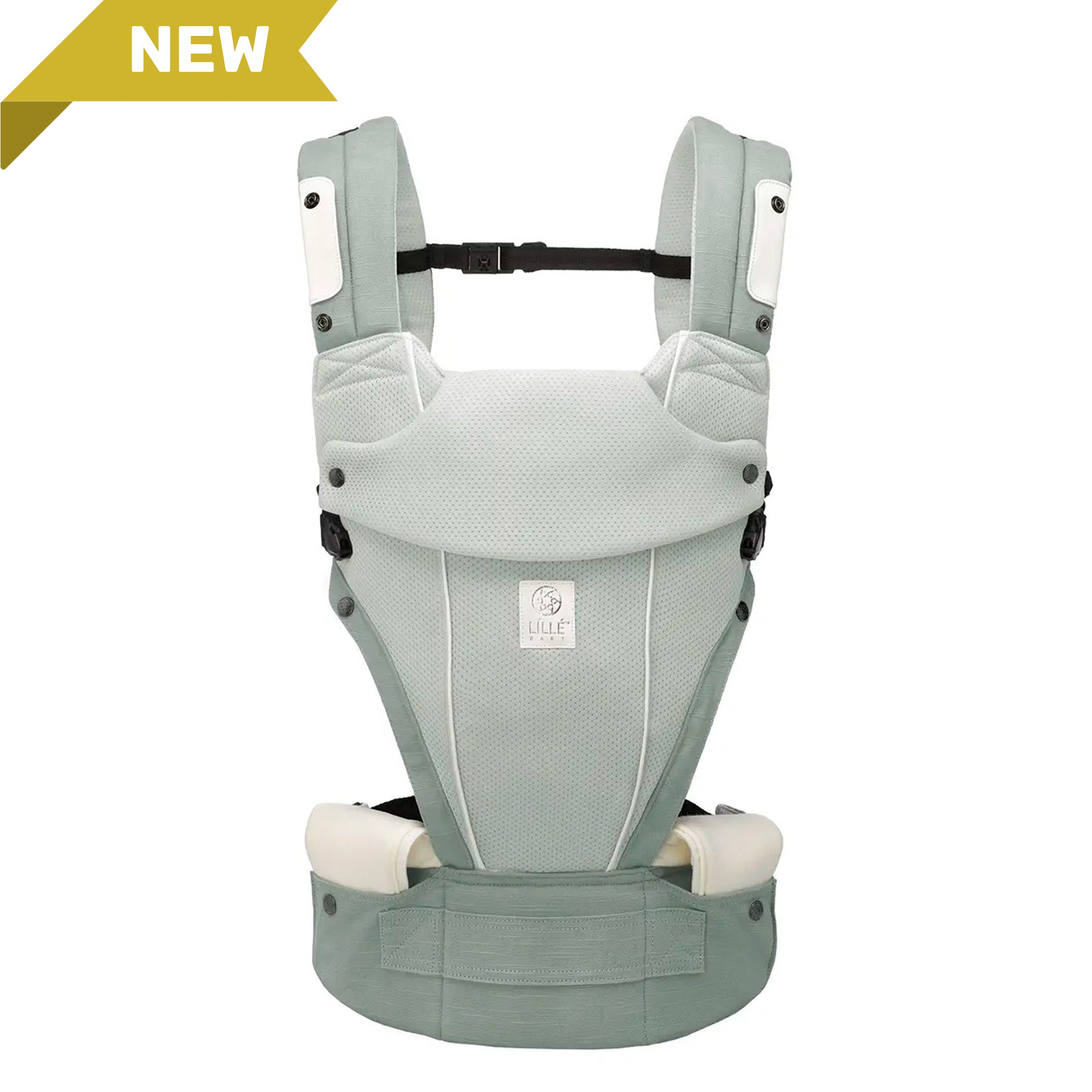
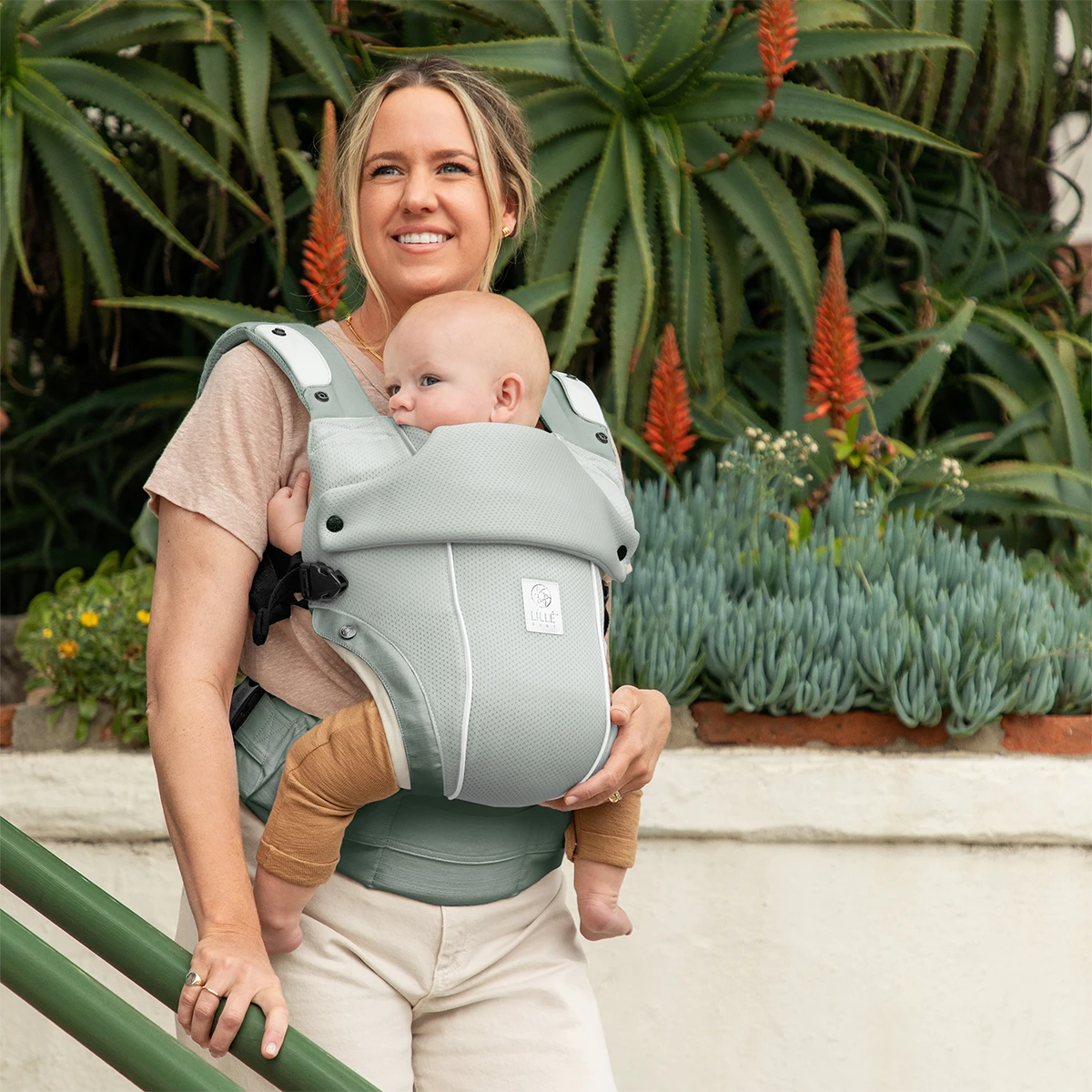
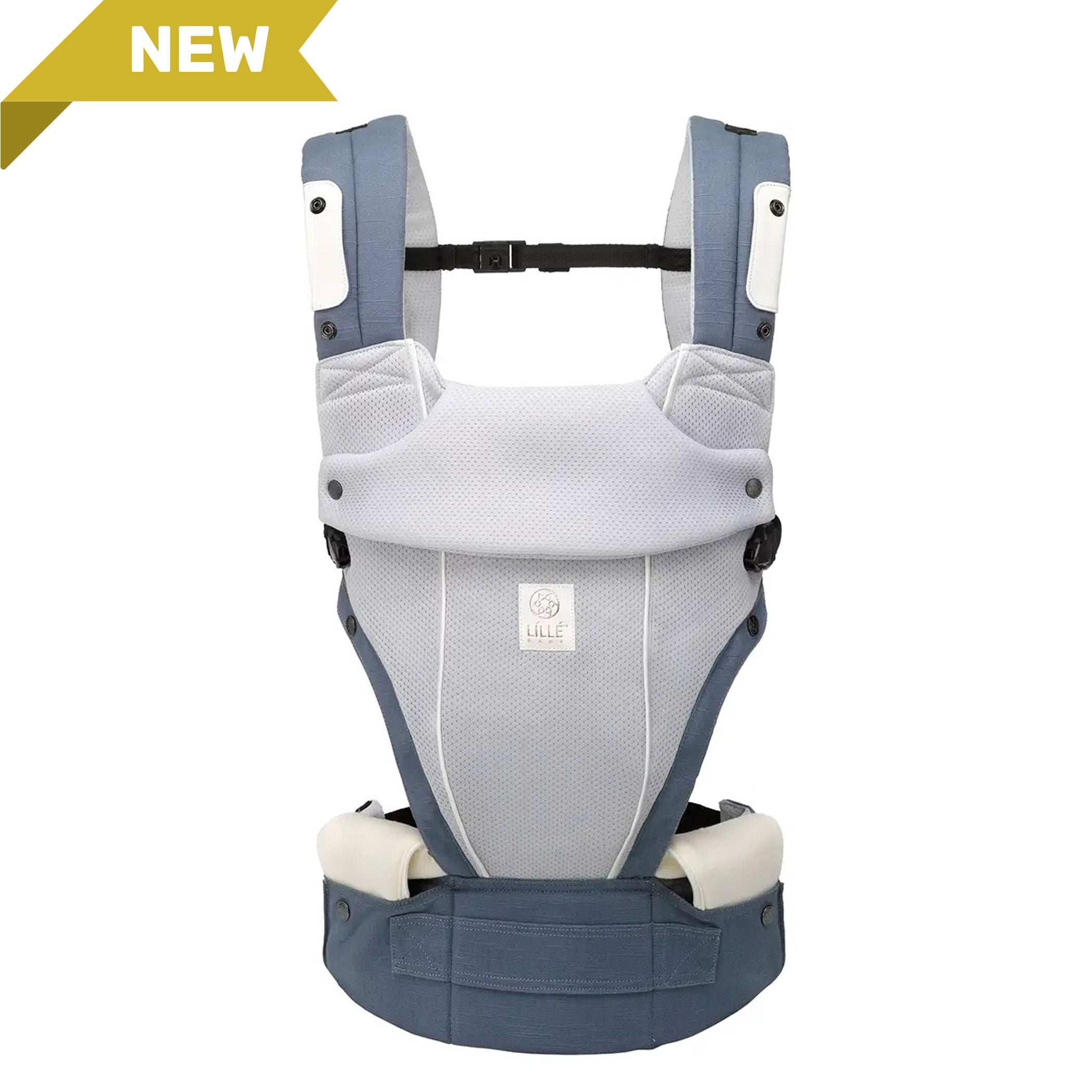
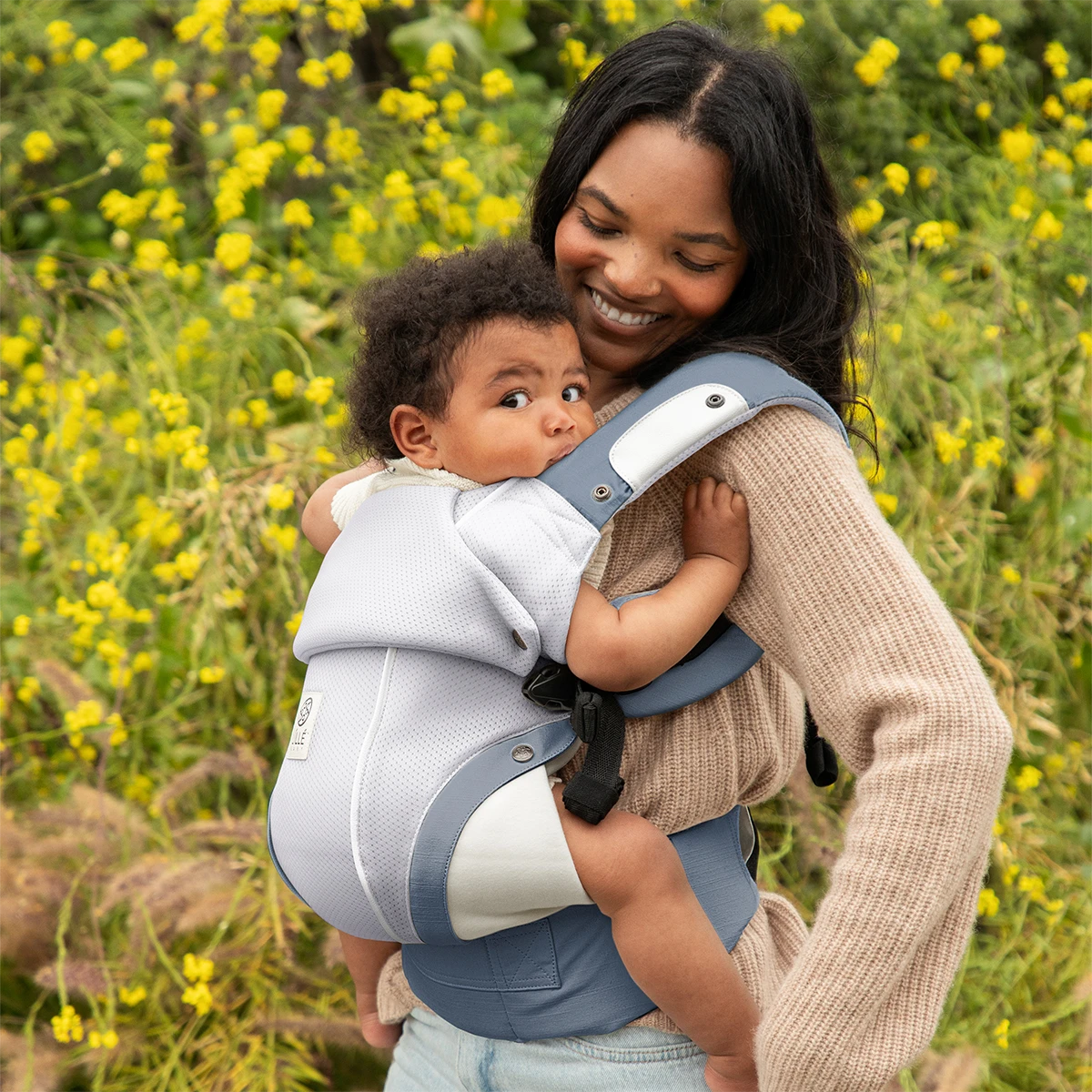
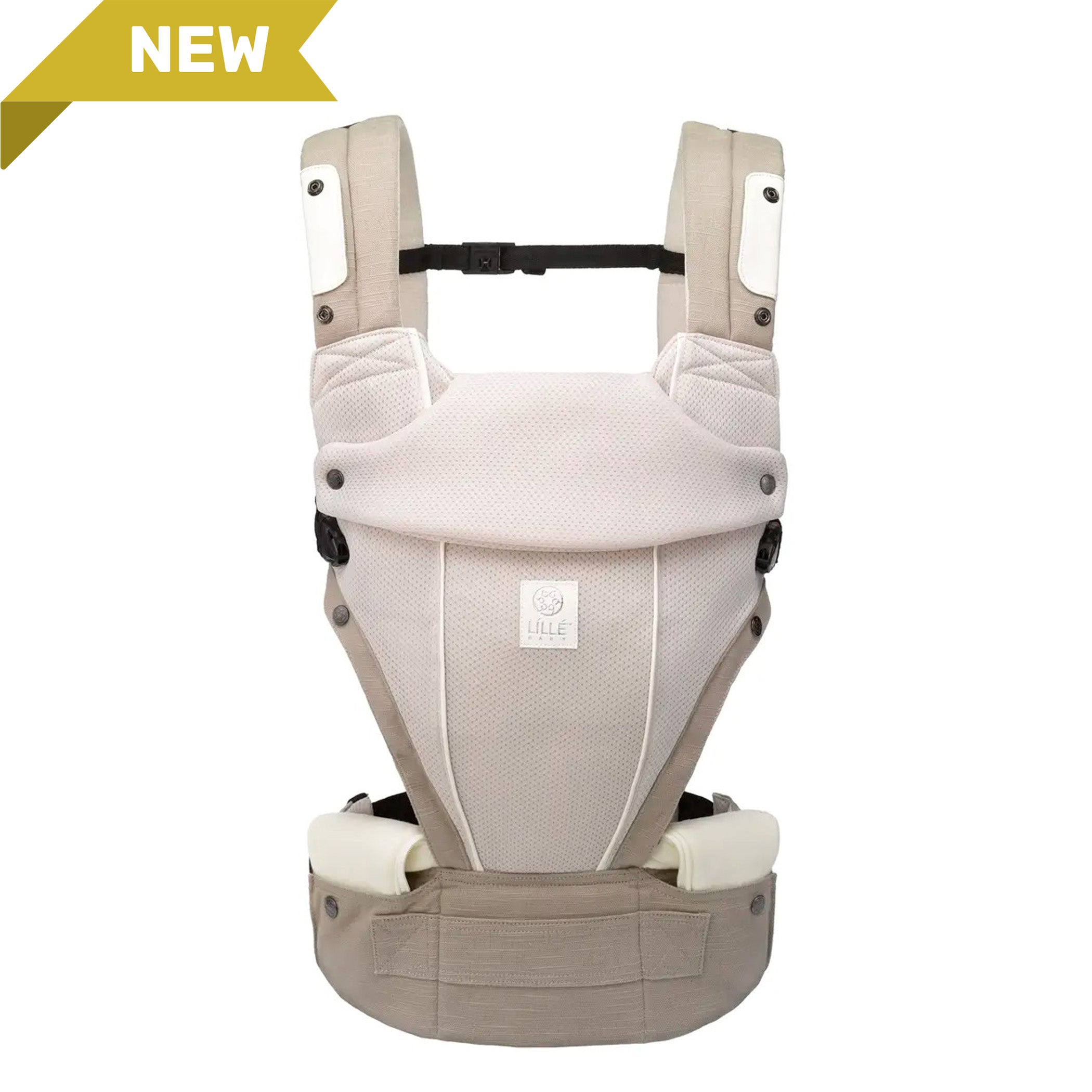
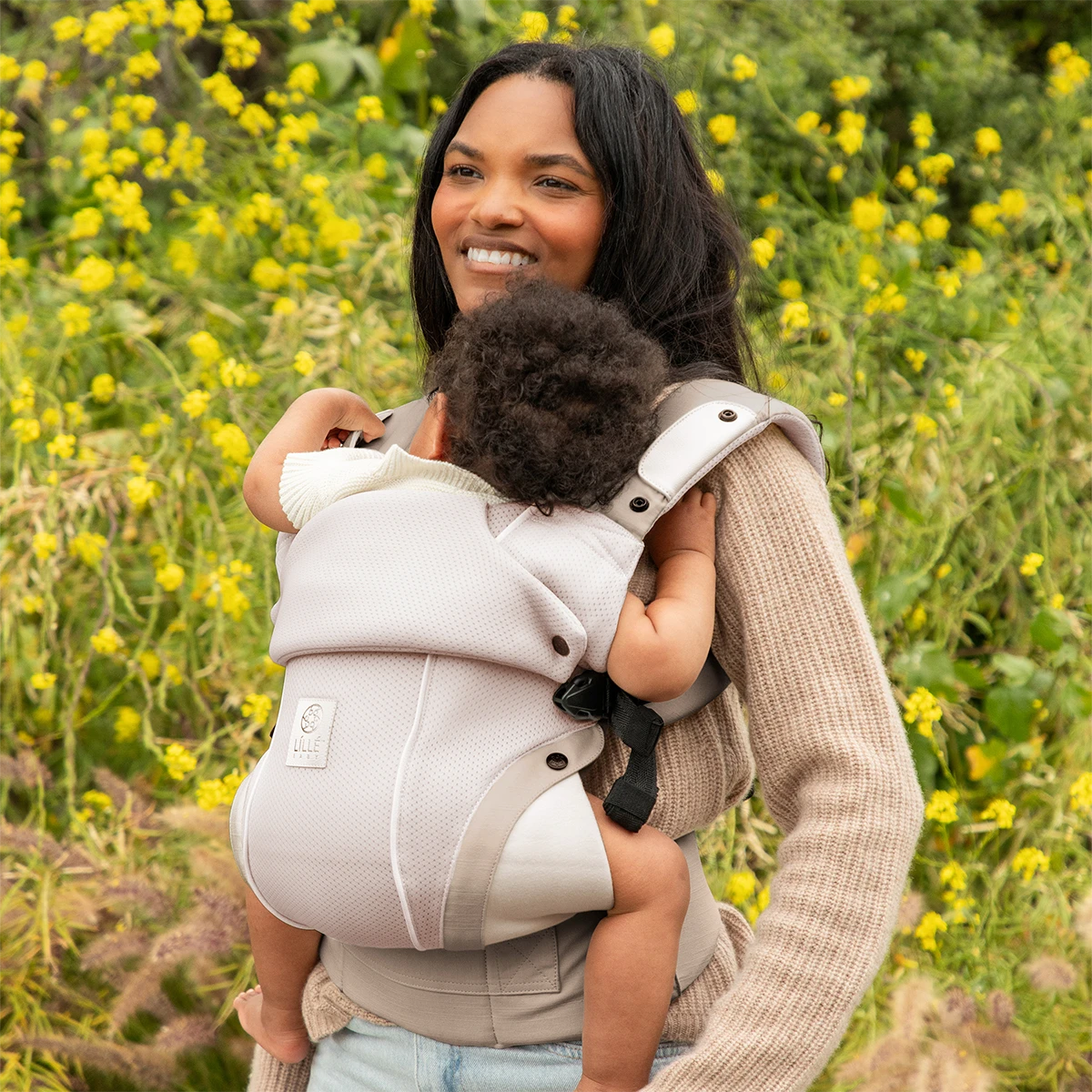
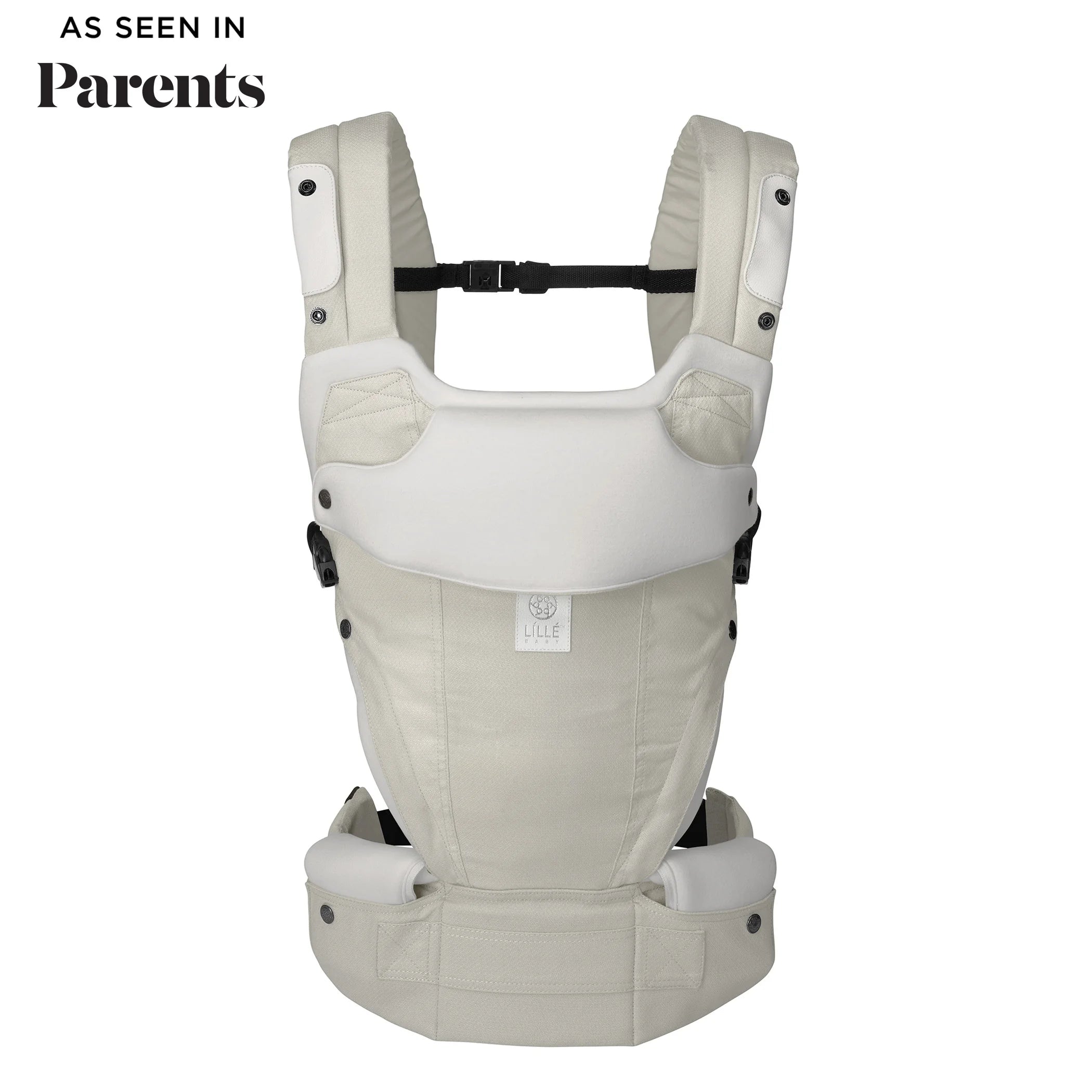
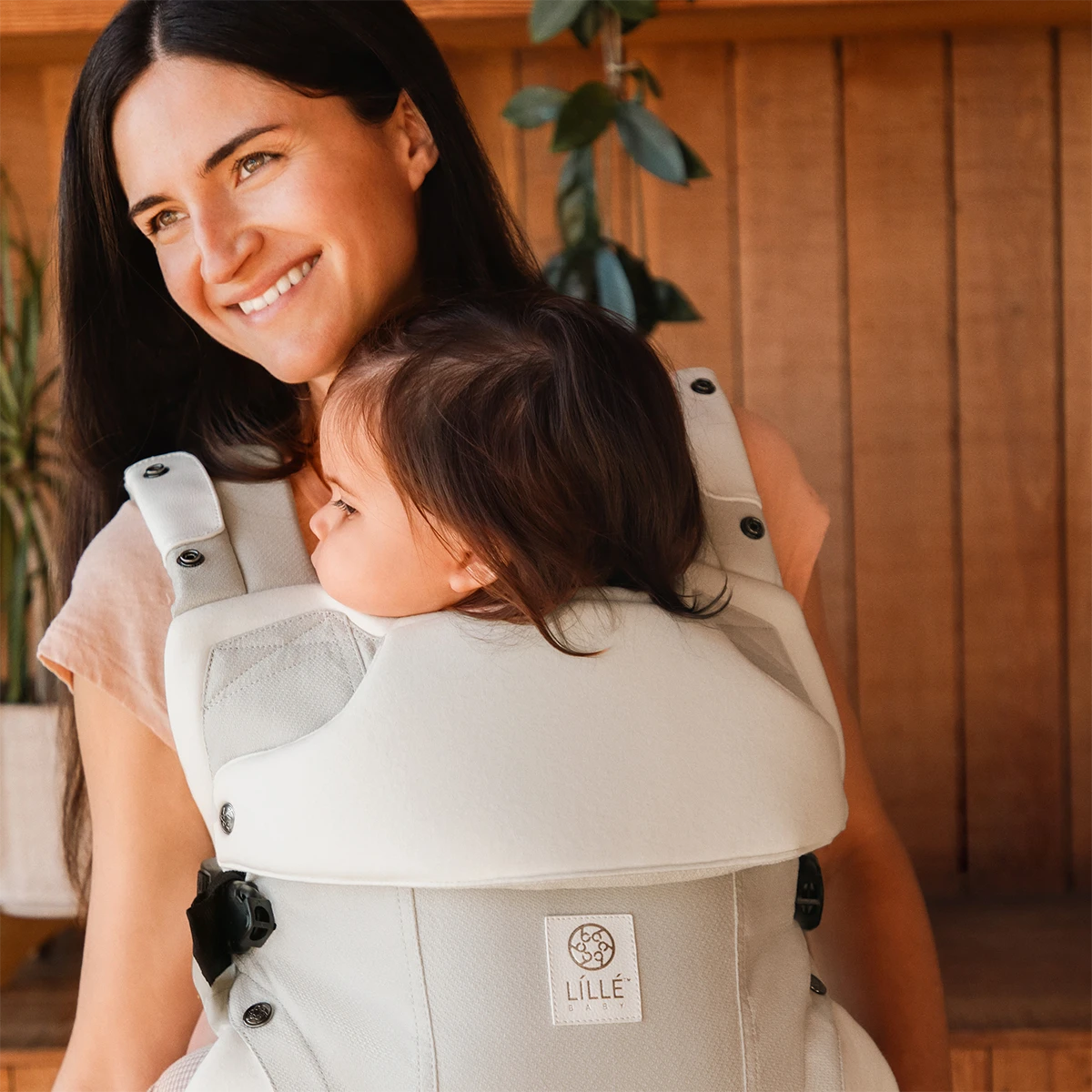
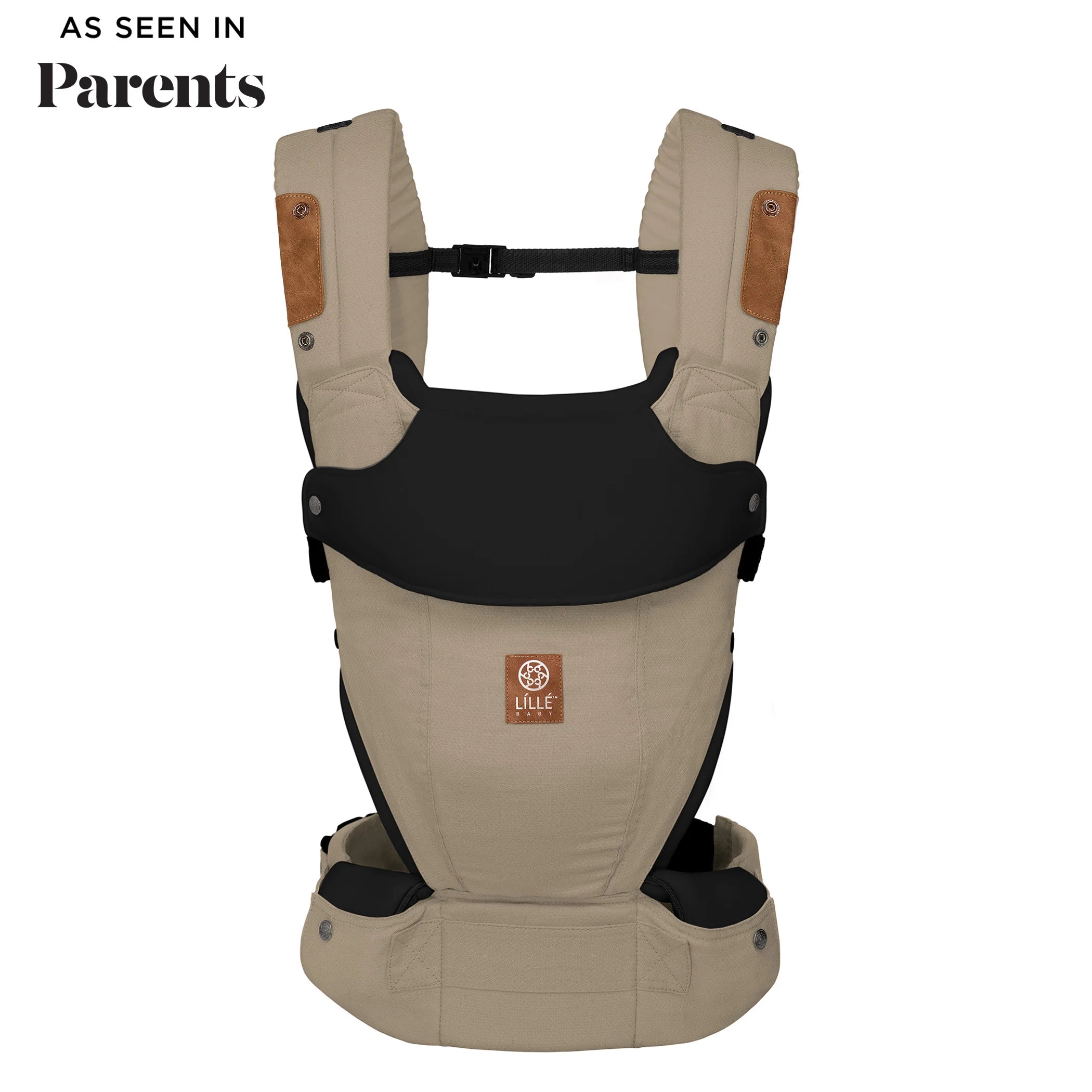
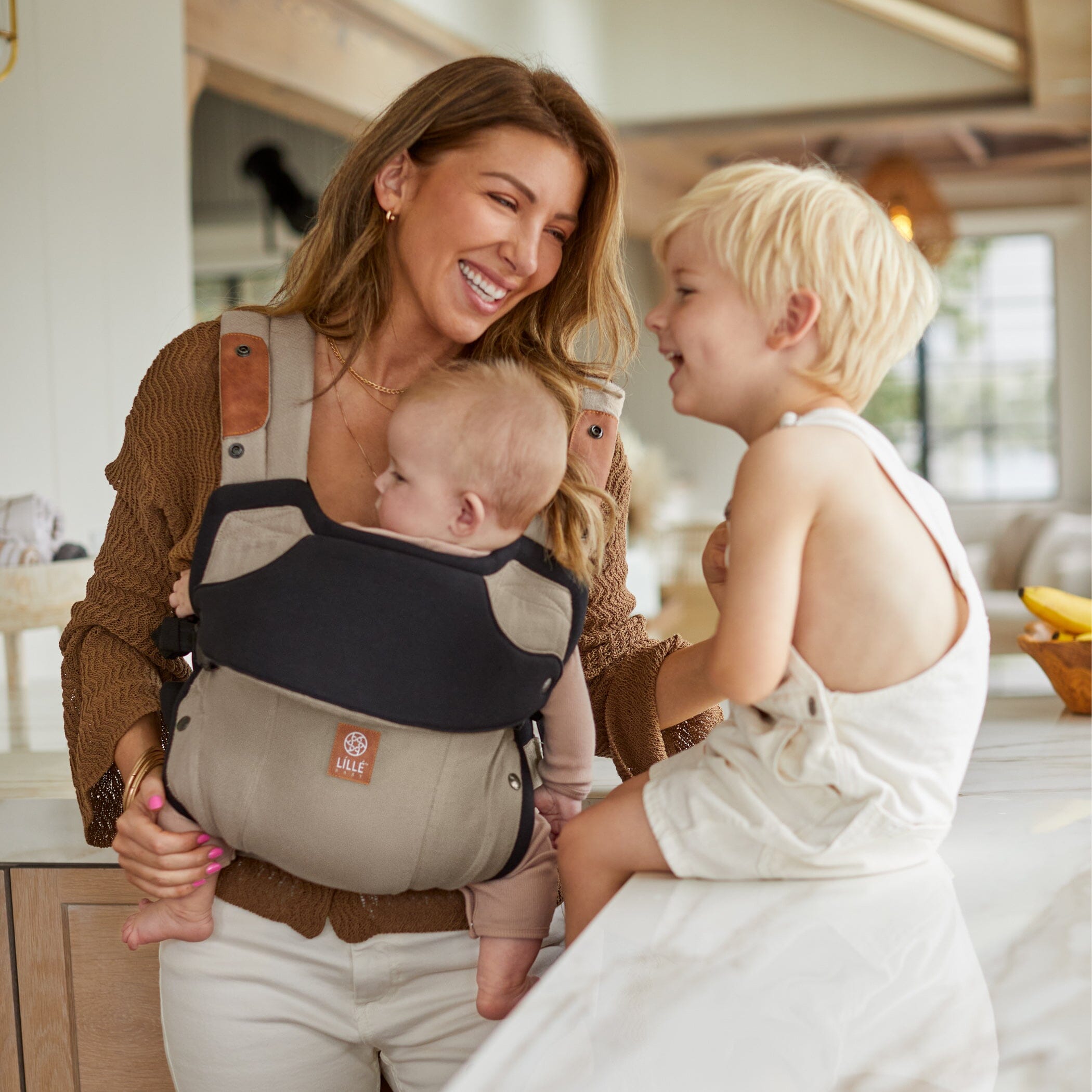


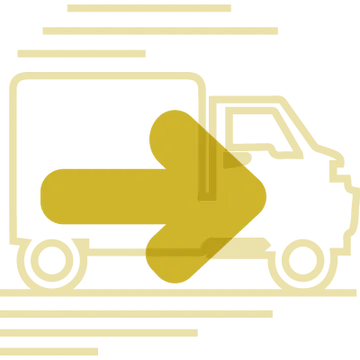

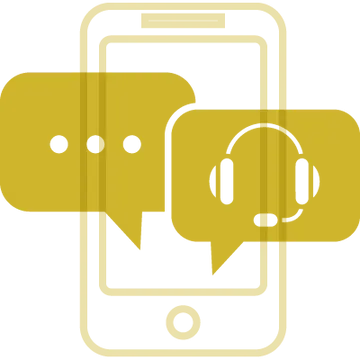

Leave a comment